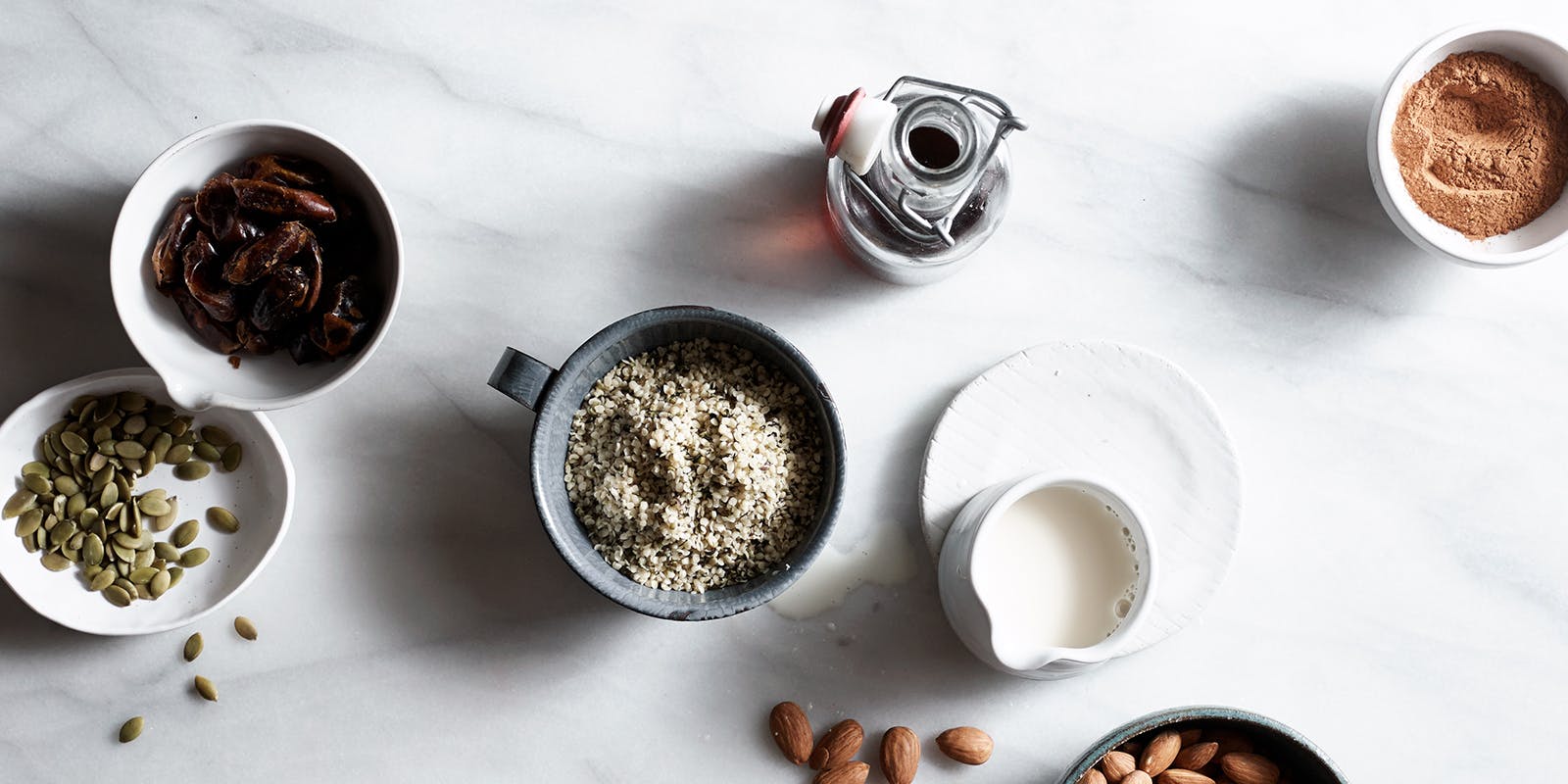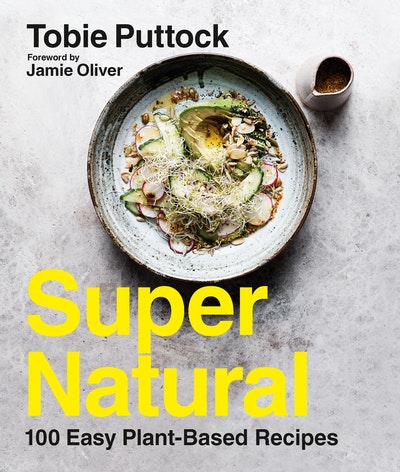From SuperNatural, Tobie and Georgia Puttock’s tips on essential vegan ingredients.
Our pantry at home is 90 per cent vegan, I enjoy a cheese toastie from time to time, I eat fish every week or so and on rare occasions I enjoy a small piece of steak or a slice of porchetta if it’s on offer. Becoming ‘reducetarian’ wasn’t an overnight decision but a result of gathering information and experience. Since Georgia has been pescatarian for more than ten years, we’re used to not eating red meat, pork or chicken at home, which probably made it easier. We try out different ingredients, make the most of fresh produce and have fun creating new meat-free meals. We get all the nutrients we need from the various plant-based recipes I cook or use a supplement if need be – and we feel great!
For the past twenty years, my pantry probably looked typical of an Italian chef: various olive oils, vinegars, a couple of different spices and lots of herbs, grains and so on. I was in the land of garlic, basil and tomatoes for so long! But after some time out of the professional kitchen I’ve befriended a lot of spices I hadn’t really used before – simply because I hadn’t been taught how to use them – plus different chillies, flours and so on. It makes me realise that vegan cooking has definitely made me a better cook – I’ve learnt to understand how ingredients work on a deeper level, and you can too.
Spices
Spices are everything in vegetarian and vegan cooking – they are your best friend and you need to get to know them. They will allow you to make simple dishes with just a few ingredients that are incredibly layered and complex in flavour.
cardamom | cayenne pepper | chilli flakes | ground cinnamon | cinnamon sticks |
cloves | coriander seeds | ground cumin | cumin seeds | fennel seeds |
garam masala | whole nutmeg | paprika | sesame seeds | turmeric |
Herbs
Herbs have always been an important part of my cooking and in SuperNatural, they definitely bring dishes to life. Fresh herbs are always my first choice but can lead to wastage. In order to reduce that, dry out leftover fresh herbs by laying them out on a baking tray lined with baking paper and sitting them in a warm part of the kitchen until dried and crisp. You can then keep them in zip-lock bags or crush them and store them in jars to be used through the bases of sauces for added flavour.
basil | coriander | mint | dill |
tarragon | flat leaf parsley | curly leaf parsley |
|
Legumes, grains, nuts, seeds
You can of course use dried beans of all varieties but, to be honest, I almost always use tinned at home. Some beans need to be soaked overnight whereas tinned are ready to rock in seconds. Some grains, like freekeh, don’t take too long to cook and they can also last in an airtight container in the fridge for a few days.
black beans | fava beans | chickpeas | red kidney beans | lentils |
cannellini beans | peas | soybeans | pinto beans | rice |
freekeh | couscous | quinoa | chia | flax |
almonds | cashews | chestnuts | hazelnuts | pecans |
macadamias | pistachios | walnuts | pine nuts | hemp seeds |
poppy seeds | sunflower seeds |
|
|
|
Other
My cooking is always evolving and my pantry reflects this.
olive oil | sesame oil | extra virgin olive oil | coconut oil |
shredded coconut | fine polenta | semolina | flour |
wholemeal flour | corn starch | almond meal | self-raising flour |
bicarbonate of soda | baking powder | baking soda | maple syrup |
brown rice malt syrup | icing sugar | dried apricots | cranberries |
soy | tamari |
|
|















